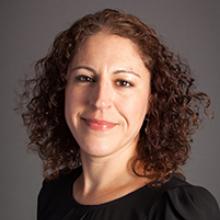Staff Supports │ Building Quality in Afterschool
Afterschool staff working with youth are essential partners in any program’s efforts to implement quality programming. They often play a variety of roles in afterschool programs, including teacher, mentor, coordinator, disciplinarian, tutor, counselor, and coach. Ultimately, strong relationships are key to whether youth feel safe and can authentically engage with peers and adults. Building staff members’ capacity to strengthen relationships and align program offerings to quality standards will help afterschool staff implement quality activities daily. Staff supports can include credential systems and aligned professional development, which may be stand-alone elements or part of a quality rating and improvement system (QRIS).
Staff support is an umbrella term for the variety of capacity-building opportunities that staff members can participate in and may include the following:
- Local and national credentialing systems and programs
- Continuing education courses and degree programs
- Preservice training and orientation for new staff
- Professional learning communities or communities of practice
- In-service training provided by programs to current staff
- Seminars and workshops provided by external organizations
- Local and national conferences
- Mentoring programs
- Ongoing informal resources, such as newsletters, online discussion boards, and learning lunches for staff members to share ideas and expertise
Quality staff supports enhance afterschool programs by building staff members’ capacity to apply new skills, perform multiple roles, and impact learning outcomes. Well-planned staff supports can drive program quality, continuous improvement, and intentional planning that can impact youth outcomes. Staff supports also contribute to increased staff satisfaction and retention.
In the Path to Quality, we highlight four foundational supports for afterschool staff:
- Core Competencies: the knowledge and skills that characterize a qualified afterschool staff member
- Credential Systems: a structured process by which afterschool staff learn, exhibit, and receive recognition for their skill set
- Aligned Professional Development Options: learning opportunities designed to familiarize staff with quality standards and how to implement them
- Career Pathways: a description of academic requirements, skills, and experience needed for individual positions in the afterschool sector
For more tools and resources related to core competencies, explore our Resources and Tools page.
Further Reading
A National Professional Development System for Youth Workers (PDF): Researchers propose an initial framework and strategy to develop a national professional development system for youth workers. The guidance in this journal article comes from a convening of experts in the out-of-school-time workforce.
Building Professional Development Systems for the Afterschool Field (PDF): The Finance Project and the National Governors Association Center for Best Practices describe multiple approaches for building a professional development system and offer examples of these strategies from states and cities in this report.
Elements of a Professional Development System for Early Care and Education: A Simplified Framework (PDF): The National Child Care Information and Technical Assistance Center identifies and defines the components of a dynamic professional development system by using a tree graphic.
The Importance of Professional Development for Youth Workers (PDF): In this brief, Child Trends provides an overview of different professional development models, makes the case for providing high-quality professional development to youth workers, and offers practical guidance about how to develop a professional development system.
The State of Professional Development: Past, Present, and Future (Book Chapter): In Chapter 7 of The Growing Out-of-School Time Field: Past, Present, and Future, experts from the National Institute on Out-of-School Time, Elizabeth Starr and Ellen Gannett, define professional development and discuss why it is important before they present the landscape of existing professional development in the afterschool field.
Promoting Quality Through Professional Development: A Framework for Evaluation (PDF): The Harvard Family Research Project presents an evaluation framework that organizations can use to assess how and to what extent professional development enhanced knowledge and changed the practice of youth workers.

